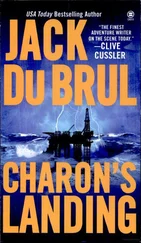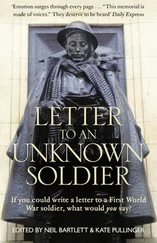He was happy staying with Marina. And she claimed she was happy to have him there. She wasn’t working much these days. The store was doing well, she said, and she had a couple of good people running it. After Stewart died, there’d been money: various insurance payouts and death benefits. As well as that, his pension. It had seemed profoundly wrong to Marina, to find herself with money in lieu of her husband. But she hadn’t turned it down, nor had she given the money away. It had, in fact, made life easier.
The news came on Tuesday that the airspace shutdown had been lifted and the first flights from London would depart that evening. On Wednesday, Michael’s assistant managed to buy him the first available seat on a plane; it would leave on the weekend, Saturday night, getting him back to London Sunday morning.
Michael and Marina met for cocktails in her living room at five o’clock, as had become their habit. Earlier in the afternoon, she’d told him she was going to get dressed up. “Put on your dress pants,” she said. He took a shower, combed his hair, ironed his shirt. “Pants,” he thought, a word that would make Jack laugh. Michael had become accustomed to “trousers”; in England “pants” meant underwear, so the idea of “dress pants” was even more surreal.
Marina was wearing a beaded dark grey shift dress and heels.
“This feels like a date,” he said.
Marina’s golden complexion became slightly rosy. “I know,” she said. “Weird. But nice.”
In the kitchen—which Michael had decided was in fact the Platonic ideal of a kitchen, the perfect kitchen in every way—he made gin and tonic for them both, ice and lemon, too much gin, not enough tonic, the way they liked it. In the living room they sat on the enormous long sofas and discussed where they were going to eat. Later, they took a streetcar along St. Clair and walked all the way down Spadina to have Vietnamese food at Pho Hung, Marina’s favourite. She wrote their meal requests on the little pad of order forms the restaurant provided. They drank big cold glasses of Chinese beer and Marina poured chili sauce over everything, and the window they were sitting beside steamed up. After they finished, Marina suggested they walk a bit before getting a taxi, and Michael was surprised to find that when they walked down the side street behind the restaurant, they were in Kensington Market, a part of the city he hadn’t visited in years. The street smelled of rotting vegetables and somewhere someone was smoking a joint. Michael felt full of nostalgia for his old self, his Canadian self, and the life he might have led had he not left his native country.
“I’d make a good Canadian.”
“Once a Canadian, always a Canadian,” Marina replied.
“Oh, I know that,” he said, “but I mean, if I hadn’t gone away.” He paused. He wasn’t really sure what he was trying to say. “It’s strange having an English child.”
Marina looked at him sideways.
“I mean, I was a Canadian boy. How is it that I have an English child?”
“Well,” Marina said slowly, “my Iranian parents had me and my brothers, their Canadian children. It isn’t that odd, Michael, in the scheme of things. People emigrate.”
“I know, I know,” said Michael, “but sometimes I dream of my Canadian life. Sometimes I worry I missed out. Canada feels—Well, you know what it feels like. Not like England.”
“But you live in London—you can go to Venice for the weekend.”
Michael nodded. “But what if the planes never flew again? What if crossing the Atlantic suddenly became much more difficult? What if choosing London really did mean choosing it, once and for all?”
“I’d miss you,” said Marina.
“Sometimes I feel like I’ve led half a life in London, always the ex-pat, never the patriot.”
“Ha,” said Marina. “You’d never be a patriot.”
“London’s problems are never really my problems, are they?”
“Toronto’s stupid problems aren’t my problems either,” said Marina.
“I’m annoying you,” he said.
“Yes, you are,” she replied, smiling.
She hailed a taxi and got in. When Michael followed her, he sat down too quickly and trapped her coat so that instead of sliding across to the other window, clearing space on the seat between them, Marina was sitting right next to him. Her leg touched his. She gave the driver their destination. Michael put his arm around her shoulder. She exhaled and leaned back against him. Then she turned her face toward his, he brushed her hair away from her face, and she kissed him. He kissed her. And she kissed him again.
Harriet sat outside Mallory Flynn’s office, waiting to go in. It was Friday morning, seven-thirty, the only time Mallory could fit her in. Harriet had expected a wood-panelled, boardroom-style office, with portraits of former controllers watching from above. But instead, Mallory’s office was a glass-walled box in a row of glass-walled boxes, adjacent to a vast open space that housed rows of desks and computers and, even at this time of morning, a great horde of people tapping away at their keyboards.
Mallory opened her door and said, “Harriet.” She smiled and held out both her hands. They embraced quickly, and Harriet felt a soft flurry of head movements from the surrounding news desks. Mallory ushered her into her office—small, crammed with books and papers and half a dozen screens, all of which were turned on, each to a different news broadcast, a babel of newsreaders and reporters all talking at the same time. Mallory picked up a remote and pressed Mute. The monitors fell silent.
“Ooh,” said Harriet, “I want one of those.”
“IT wizards,” she said.
“You look great, Mallory,” and it was true. Well-cut black suit, obedient blond hair, simple gold necklace, gold rings, gold bracelets.
“Makeup. It’s all down to very expensive makeup. That stuff can make a corpse look good.”
They sat down, Mallory behind her desk, Harriet wedged between the screens. “Thanks for your time.”
“How are you? How’s Jack, how’s Michael?”
“They’re good,” said Harriet, “they’re fine.” She felt the pressure of time, the minutes ticking by on the large old-fashioned alarm clock on Mallory’s desk, its round face topped with two fat bells and a clanger. “And Peter?”
Mallory had Peter when she was in her early twenties. She’d been a single parent; Peter was grown now, near the end of his medical training. “He’ll finish university one day, I imagine.”
“He’s my friend on Facebook,” Harriet said.
“You’re kidding.”
“He works very hard…”
“But he knows how to have a good time.” Mallory sighed. She looked at Harriet. “What can I do for you?”
“I’m ready for a change.”
“What do you mean?”
“Well,” Harriet said, “radio was good for me while Jack was young, but I want to get back into television news.”
Mallory raised her eyebrows. “You do?”
“I do. And I’m hoping you’ll, well—I might as well just say it. Shit. Sorry. I’m hoping you’ll take a look at the work I’ve been doing lately—it’s not much—but still—I’m hoping that you’ll think of me.” Harriet laughed at herself, exhausted. “You know. With the election coming up—you must need people. On the ground. In the constituencies. That kind of thing?”
Mallory sat back in her chair. “The election,” she said.
“Stick me out in a constituency where nothing ever happens—just in case something interesting comes along?”
“We do our election planning a long way in advance,” Mallory said.
Harriet smiled hopefully.
“I’ll see what I can do.”
Work remained busy, if less exciting. Colleagues who’d been stranded abroad had begun to reappear. The story itself, the ash cloud and the airspace shutdown, was finished. Richmond had its old low-sky, noisy self back once again.
Читать дальше












